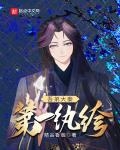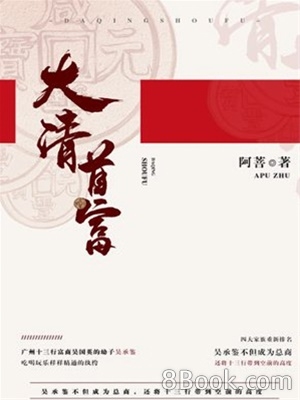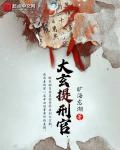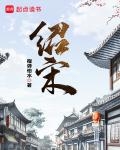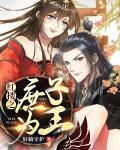Chapter 83: First Encounter with Literary Inquisition (VI)
Gao Xuezheng stood up, and the people opposite him also stood up quickly. Walking up to the 20-something scholar, Gao Xuezheng patted him on the shoulder and said, "Jinchen, you should study hard, pass the imperial examination, and bring honor to your family."
The scholar bowed quickly and said, "Thank you for your encouragement, teacher."
"I have tested your knowledge and you are indeed a talented person," Gao Xuezheng praised.
After a few polite words, the visiting family left happily. Gao Xuezheng sat back in his seat. The academic performance of this juren named "Jinchen" was just so-so compared to the jinshi he had seen. But his family was rich, so he really had to receive him. Of course, it was also necessary to maintain a good relationship. If their family had a jinshi, it would be an honor for the Jinan Prefecture academician.
The teacher beside him waited for Gao Xuezheng to rest for a while before saying, "Master, several scholars from Zichuan County came to ask for an audience. If the Xuezheng wants to see them..."
Gao Xuezheng felt unhappy when he heard about Zibo County. However, they were just a few scholars, so it would be unreasonable not to meet them. Gao Xuezheng said impatiently, "Let them in."
Xuezheng, whose full name is "Tidu Xuezheng", also known as "Xuexue Envoy", commonly known as "Xuetai", was a local cultural and educational administrator in the Qing Dynasty.
The court appoints officials who have passed the imperial examination from among the officials of the imperial court, such as the vice minister, the imperial court official, the imperial court official, and the ministerial officials. They are in charge of the school policies and annual and imperial examinations of the province. They visit the prefectures, departments, and states under their jurisdiction regularly to inspect the quality of teachers and scholars and the diligence of students. If there is any reform, they will be implemented together with the governor-general and the provincial governor.
Although the position of the academic official was not a position of great wealth and honor, it was quite noble. Meeting with scholars was indeed the duty of the academic official, but the fact that the high academic official could meet with scholars was also a great honor for them.
Several scholars obviously knew this, although scholars did not need to kneel down when meeting officials. After seeing Gao Xuezheng, several of them immediately knelt down and saluted. After the ceremony, Gao Xuezheng asked, "What are you waiting for?"
"Sir, we are here to sue our local Huo Chong." An old scholar with a white beard who was leading the group shouted loudly.
When Gao Xuezheng heard the name Huo Chong, he felt that his previous intuition had come true. Now when officials in Jinan Prefecture mentioned Zibo County, many people instinctively thought of the official outlier, Huo Chong.
In fact, Gao Xuezheng also thought about what make everyone care so much about him, a prospective official.
If you think about it carefully, there is nothing wrong with what Huo Chong did. When he was a craftsman, Huo Chong showed his craftsmanship and made admirable glass fire. After buying an official position, Huo Chong did not do the same as those scholars, taking on lawsuits and making all kinds of troubles. He also did not use this official position to bring trouble to the village.
The gentry took on the responsibility of collecting taxes, and Huo Chong was a model of paying taxes. Huo Chong paid as many taxes as the number of people who sought refuge with him. He really didn't owe a cent.
Even as a businessman, Huo Chong made money and paid taxes.
But for some reason, many people felt that something was wrong with Huo Chong after they came into contact with him. It was a feeling that was hard to describe, like an indescribable itch. Although you knew it might not be a real itch, you just felt uncomfortable.
Just like Huo Chong bought the families of some prisoners in the literary inquisition, Huo Chong's attitude was very clear. He paid money to buy the people. Whoever was willing to take the people away, Huo Chong would let them take the people away. Huo Chong did not consider the ransom money at all.
When many people mentioned this matter, they would say a few words of praise without really meaning it. It was not that it was wrong to do so, but it just felt like it was wrong for Huo Chong to do so.
Wanting to quickly drive these guys away, Gao Xuezheng asked, "What did Huo Chong do?"
The scholar immediately handed over something and took out two pamphlets. The pamphlet was a complaint against Huo Chong, but the scholars probably couldn't find any solid evidence for the complaint, and the whole thing was full of far-fetched arguments. Gao Xuezheng frowned when he saw it.
What about disrespecting Confucianism, being heretical, and being disrespectful to Confucius. If these reasons are true, Huo Chong should be dragged out and beheaded at the very least. If it is too serious, it would not .
There are only a few relatively clear facts in this "petition" . Huo Chong opened some "learning halls" for his hired workers to learn to read. Many women who could read were employed in these schools.
The scholars thought this was outrageous. It was like a hen crowing at dawn, and it was an insult to the Ming Cult.
Another crime was that local scholars wanted to give lectures in these schools, but were rejected by Huo Chong on the grounds that "my school teaches literacy, not reading."
The scholars' descriptions reminded Gao Xuezheng of Huo Chong's usual words and deeds. He always claimed that he only knew how to read and had never read a book. This was what the two former magistrates of Zibo County had said to Gao Xuezheng.
It seems that the scholars used Huo Chong's original words.
After reading this viciously written but in fact harmless "petition", Gao Xuezheng put it down without saying a word.
Several of the booklets were printed, and the printing was quite good. The handwriting was clear and the characters were quite small. But the paper was very ordinary, and it was obviously cheap paper. As for the content, it was divided into three books: "Chinese", "Mathematics" and "Nature".
I opened the Chinese textbook. The opening was not the usual content like the Thousand Character Classic, but vernacular like "This is a pig" and "Those are two sheep".
Gao Xuezheng was also a Jinshi, and had the ability to read quickly. I flipped through it with confusion, and found that it was all in vernacular Chinese. Probably the purpose was to teach people who read this "Chinese Language" to speak vernacular Chinese more easily. Other than that, there was nothing else.
When I opened the math textbook again, it was full of addition, subtraction, multiplication, division, and multiplication tables. Many of the exercises were directly related to life. They all mentioned how to calculate grain harvests, sell or buy grain and livestock. In addition to arithmetic, there were also abacus content and abacus formulas. It seems that this course also teaches people to use an abacus.
Gao Xuezheng was not very good at math, and he just looked through the book to see if there was anything that could be related to the literary inquisition. From beginning to end, the only two things that interested Gao Xuezheng were the problem of "chickens and rabbits in the same cage" and the problem of transporting "wolves, sheep, and cabbages" across the river.
After browsing it, I really can't see any key points that can be used for practice.
Then I picked up the "Nature" textbook, which talked about the 24 solar terms and what farm work should be done during each solar term. In addition, I learned how to determine the direction according to different situations to avoid getting lost.
This made Gao Xuezheng hesitate. After all, it mentioned the basic movement of the sun, moon and stars. It also involved some constellations at night. For example, the Big Dipper and the North Star, as well as the bright Altair in the sky. Because it was in vernacular, Gao Xuezheng naturally connected the description in the science textbook with the starry sky that he occasionally looked up at.
You know what, there’s really nothing wrong with this description.
If they had to find a reason for Huo Chong to be arrested, only this astrological sign used to distinguish directions could be involved. But Gao Xuezheng knew very well that if this level of content was used as an excuse, everyone would know that it was a deliberate attempt to convict him.
After putting down these things, Gao Xuezheng wanted to get rid of these scholars. But he was also very curious. They dared to sue Huo Chong with such a small amount of things. These scholars really behaved very unreasonable. So he asked: "Since you want to sue Huo Chong, is this all you have?"
"Sir, are these not enough?" the leading scholar asked in confusion.
"What do you want to sue him for?" Gao Xuezheng asked patiently.
"Huo Chong lets women teach, which is a humiliation to the Ming Cult!" When the old scholar talked about this, he was so angry that his beard began to tremble.
"According to what you said, the school run by Huo Chong teaches people to read. I have also read these books, and there is not a single poem or book in them. What does this have to do with the Ming Cult?" After Gao Xuezheng finished speaking, he felt his temples swell. The ideas of these country scholars are really speechless. They insist on saying that it is an insult to the Ming Cult. These scholars are more like people who insult the Ming Cult.
Just as I had suppressed my emotions, I heard the old scholar say, "The sage created characters. Isn't recognizing characters the same as reading?"
Gao Xuezheng almost wanted to scold these guys. But after all, Gao Xuezheng didn't like Huo Chong very much, so he just asked the master to take these people away for questioning. Let them sort out the matter first.
Wait for these scholars to get out of here. Gao Xuezheng drank a cup of tea and felt better. These people were educated, but they were not as good as Huo Chong, who had never been educated. Huo Chong knew that reading and knowing words were not the same thing...
Thinking of this, Gao Xuezheng suddenly felt a chill in his heart. Wait, since Huo Chong had never been to school, how did he know the difference between reading and recognizing words so clearly?
With this train of thought, Gao Xuezheng thought along the way and sorted out what he knew about Huo Chong's actions. Gao Xuezheng was very surprised by his discovery.
Many people say Huo Chong is a very lucky guy, and some say Huo Chong is good at scheming. These views are based on the fact that Huo Chong does not understand what he has obtained, and he got everything he has today by luck.
If we change to the latest perspective, Huo Chong actually knew what he was facing, and all he did was just choose what he could reach among various outcomes.
Thinking of this, Gao Xuezheng suddenly laughed at his own assumption. He actually thought Huo Chong could know about the royal family? What a joke! Even many high-ranking officials in the capital didn't understand it, let alone a small craftsman in Zibo County, Shandong.
Perhaps Huo Chong was just exceptionally honest. As Magistrate Lu said, Huo Chong said he had heard a teacher say that reading and recognizing words are different. Huo Chong was cautious by nature, so he never touched poetry and books, but only recognized words.
Even so, Gao Xuezheng was still worried and planned to ask other people to look at the booklets Huo Chong had prepared tomorrow.
After a while, the teacher came back and reported, "Scholar, those people have left."
"Why do they hate Huo Chong so much?" Gao Xuezheng was very puzzled as to how Huo Chong had offended the scholars.
The teacher could not help but smile bitterly and said, "Xue Zheng, Huo Chong used the women from the literary inquisition to teach the people he hired to read. They provided food and lodging, and paid 500 wen a month."
"Oh..." Gao Xuezheng suddenly realized and couldn't help but sighed, "So that's it."
Gao Xuezheng was from Guangdong and worked in an iron mine in Guangdong. He was paid only 400 wen a month with food and lodging. A woman taught people to read, which was not teaching, but she was paid 500 wen a month. No wonder these rejected scholars were angry.
Huo Chong's private school was called a Mengguan, which provided enlightenment education. Of course, Huo Chong only taught people to recognize characters but not to read, so it was not even a Mengguan.
According to the organization form, private schools can be roughly divided into three types: scattered schools, special schools, and charity schools. Special schools are schools that are specially hired by wealthy families to teach their own children. The teachers' level and salary are very guaranteed; charity schools are organizations that rely on government funds or funds raised by wealthy people to sponsor the children of poor families to study. In those days, if a local student who studied well passed the imperial examination or even became a Jinshi, the whole village would be "proud of it."
The most common of the three is the Sanguan. The conditions of the Sanguan were not good, but it saved many children from ordinary families from becoming illiterate. The homework of the elementary school was very shallow at the beginning, mostly some rhymed texts, such as "Hundred Family Names", "Three Character Classic", "Thousand Character Classic", "Six Words and Miscellaneous Characters", etc., and then other books were read according to the development of the students.
The teachers in the Sanguan were usually not very knowledgeable. Most of them were scholars who had failed the imperial examinations many times. They earned a living by teaching the children in the neighborhood. In fact, this was not a good job. Some people really had no money, while others looked down on teachers. In short, some teachers had to go door to door to ask for tuition fees, but they were often unsuccessful.
The free accommodation and five hundred wen per month were very attractive to the poor scholars who had just left the academy. However, these jobs were actually controlled by women, which was really intolerable.
After thinking about it, Gao Xuezheng felt that he understood Huo Chong's intention. The families of these people in the literary inquisition were not from bad backgrounds. Giving them such treatment was also a way for Huo Chong to show goodwill to the families of these families. Isn't this what a guy like Huo Chong, who is good at scheming, is best at!
However, Gao Xuezheng still couldn't understand it, so he asked his teacher what he thought of Huo Chong's purpose of letting these women give lectures.
The master thought for a while and answered unconfidently: "Xue Zheng, let me see, if Huo Chong hides those women, what will everyone think?"
"Oh? Oh..." Gao Xuezheng felt that the master had grasped the main point. If Huo Chong put these women in certain courtyards, everyone would definitely think that Huo Chong had opened a harem and indulged in lust.
Although some people still think this way, letting women teach people to read at least lets their families know that their married daughters are not imprisoned and are even treated as human beings.
For those who are scheming, this is a good way to show goodwill.
Thinking of this, Gao Xuezheng's evaluation of Huo Chong became even lower. He thought Huo Chong was a knowledgeable person. How knowledgeable could a guy who could deliberately show goodwill like this be!
Although he had determined Huo Chong's character, Gao Xuezheng was still a little worried. The next day, he found a few knowledgeable people and asked them to look at Huo Chong's literacy textbook. After reading it, one of them said, "Xuezheng, isn't this what the apprentices need to learn to keep accounts?"
"Keep accounts?" Gao Xuezheng was not very clear about this.
The man briefly talked about things like bookkeeping, and linked the contents of Huo Chong's textbook to bookkeeping and going out to collect debts and lend money. Knowing the solar terms, calendar, and farming seasons is the most convenient for collecting debts and lending money. As for mathematics, it is used for bookkeeping.
In summary, the purpose of these things is to train useful apprentices.
Others asked, why did Huo Chong make such a big deal?
The man obviously didn't know very well, but he insisted on answering: "Even if one out of ten can learn and be useful, he is also a good helper. Huo Chong is not short of money, if he really lets him get dozens of good helpers, wouldn't the business be bigger!"

